Hunters Hill Council takes steps to move on large flying fox colony at Riverglade Reserve
It’s one of Sydney most expensive suburbs — and residents have made it clear: noisy bats are not welcome in their neighbourhood.
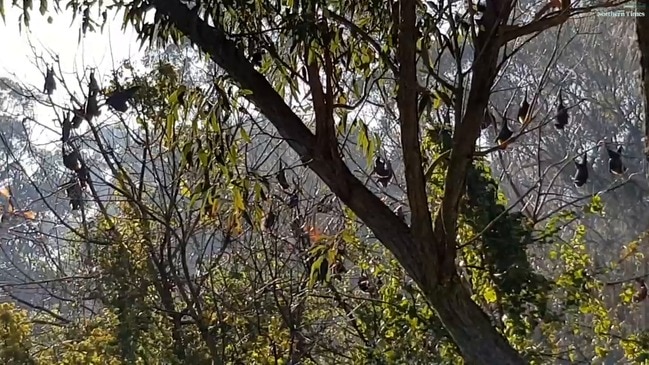
Residents in an exclusive Sydney suburb are pushing for a large colony of bats to be moved out of their expensive neighbourhood as years of all-night screeching and an “intolerable” smell from droppings take their toll.
Hunters Hill councillors have unanimously voted to take the first steps to relocate an estimated 10,000-strong population of threatened flying foxes at Riverglade Reserve in Huntleys Cove.
Deputy Mayor Ben Collins said the bats “don’t belong” in the streets of Hunters Hill.
“Thousands of bats have made Riverglade Reserve their home — and it doesn’t seem that they have any intention of moving,” the Liberal councillor said.
“They come back here to eat and sleep, but they don’t seem to sleep quietly. There’s a lot of screeching.
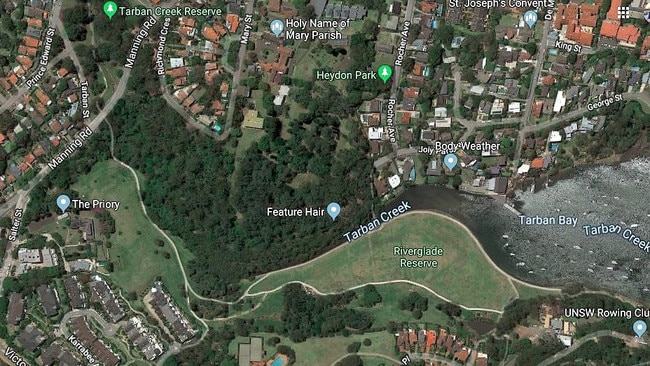
“Bats are very important for the environment, but they just don’t belong here in the residential area.”
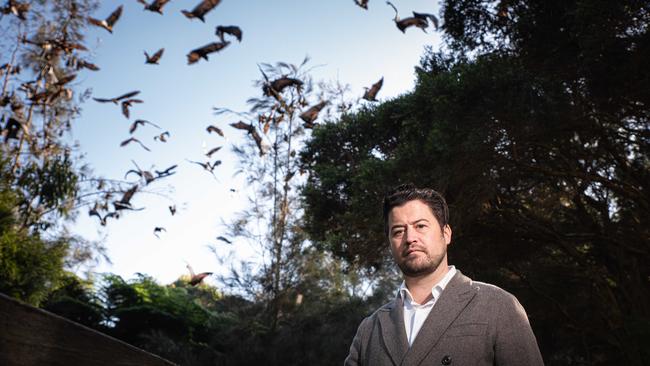
Independent councillor Elizabeth Krassoi, who has lived near the colony since the flying foxes moved in six years ago, said the piercing noise made it tough to sleep.
“I get woken up at 4am by the sound of the bats,” Cr Krassoi said. “And it’s even worse in summer. The numbers have grown and grown and grown — and it’s not just the noise, but the smell is intolerable, to the point where it’s eye-watering.
“They are pooing in pools — and the hillside (trees) has been decimated by the bats, and the water quality (at Tarban Creek) has suffered.
“They are bushland pollinators, so they are critical to the environment. But we have to pull their numbers back here.”
While some residents have raised concerns to council about the flying foxes’ welfare, others are fed up with the constant screeching.
One resident said the noise was driving her family “mad”.
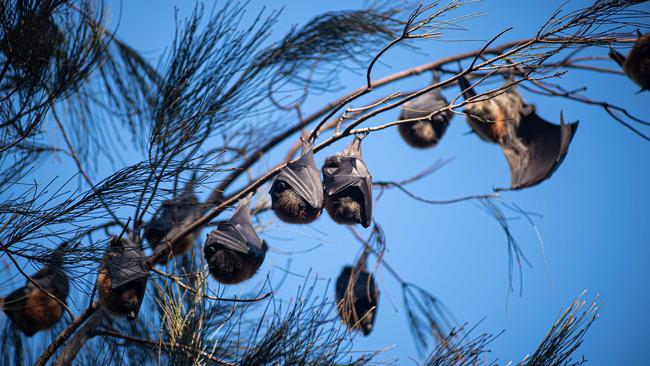
“I can tell you the noise is unbearable some days,” the resident, who asked not to be named, said. “I’ll be glad if council does something to move them on.”
Bat whisperer Tim Pearson conceded that living close to a bat colony could be annoying.
“I love them dearly, but it’s not easy living next to a camp of bats,” he said.
However, the wildlife ecologist, who has worked with bats for nearly two decades, said council’s bid to move the flying foxes on was “an exercise in futility”.
“They will just move down the road to where there is more food availability, or probably just come back,” Mr Pearson, who is chair of not-for-profit organisation Sydney Bats, said.
“Realistically, it’s a case of better tree maintenance, educating residents about flying foxes, and councils can also get subsidies for residents to put in insulation and double glazing, making it easier to live with them.
“Short of turning Sydney into Shanghai, we’ll have to get used to living with them.”
Hunters Hill’s draft Tarban Creek Flying Fox Camp Management Plan will be on public exhibition until July 25.
‘CURIOUS, GENTLE, INTELLIGENT’
Tim Pearson says the reputation of flying foxes as serial pests is unfair.
“I’ve been working with bats since 2004 and they are not trying to harm anyone. They get a really bad rap with their noise and smell,” the wildlife ecologist, who is doing a PhD into the threatened species, said.
He likened the noise of a bat colony to that of “a thousand people talking to each other in a food court at a shopping centre”.
“The noise is simply the animals communicating,” Mr Pearson said. “They are just talking and arguing with each other; some of the boys are saying how bad some of the girls are; and the girls are saying ‘not in this lifetime’,” he added with a laugh.
“They are wild animals, of course, but when you work with them they are curious, gentle and intelligent.”
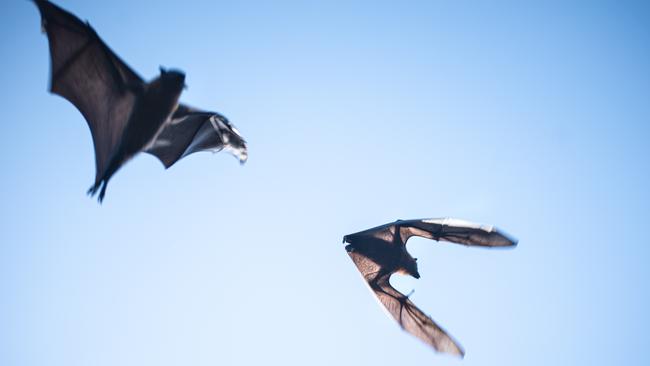
He said bats were known to travels hundreds of kilometres at night for food.
“We’ve tracked one bat flying 350km in one night — and they have a cruising speed of about 40km/h,” he said. “This is all about finding food as they try to survive.”
Mr Pearson it was difficult to estimate the population of flying foxes across Greater Sydney.
“In effect, there is one population of flying foxes right up and down the coast. Basically the population is fluid, depending on where the food is,” he said.
“We’ve seen instances in Gordon, for example, where one night there’s 20,000 of these animals and the next night there’s none.
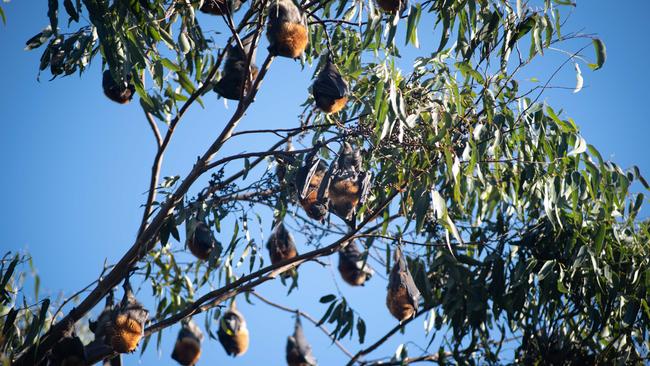
“We believe that the population is at best stable across the Sydney Basin, but probably in a slow decline. They are threatened species, but not endangered.”
There are 350 known flying-fox camps along the eastern seaboard of Australia.
There are several across Sydney, including at Centennial Park, Avalon, Warriewood, Balgowlah, Gordon, Parramatta Park, Clyde, Huntleys Cove, Wolli Creek, Kareela, Macquarie Fields and Emu Plains.


